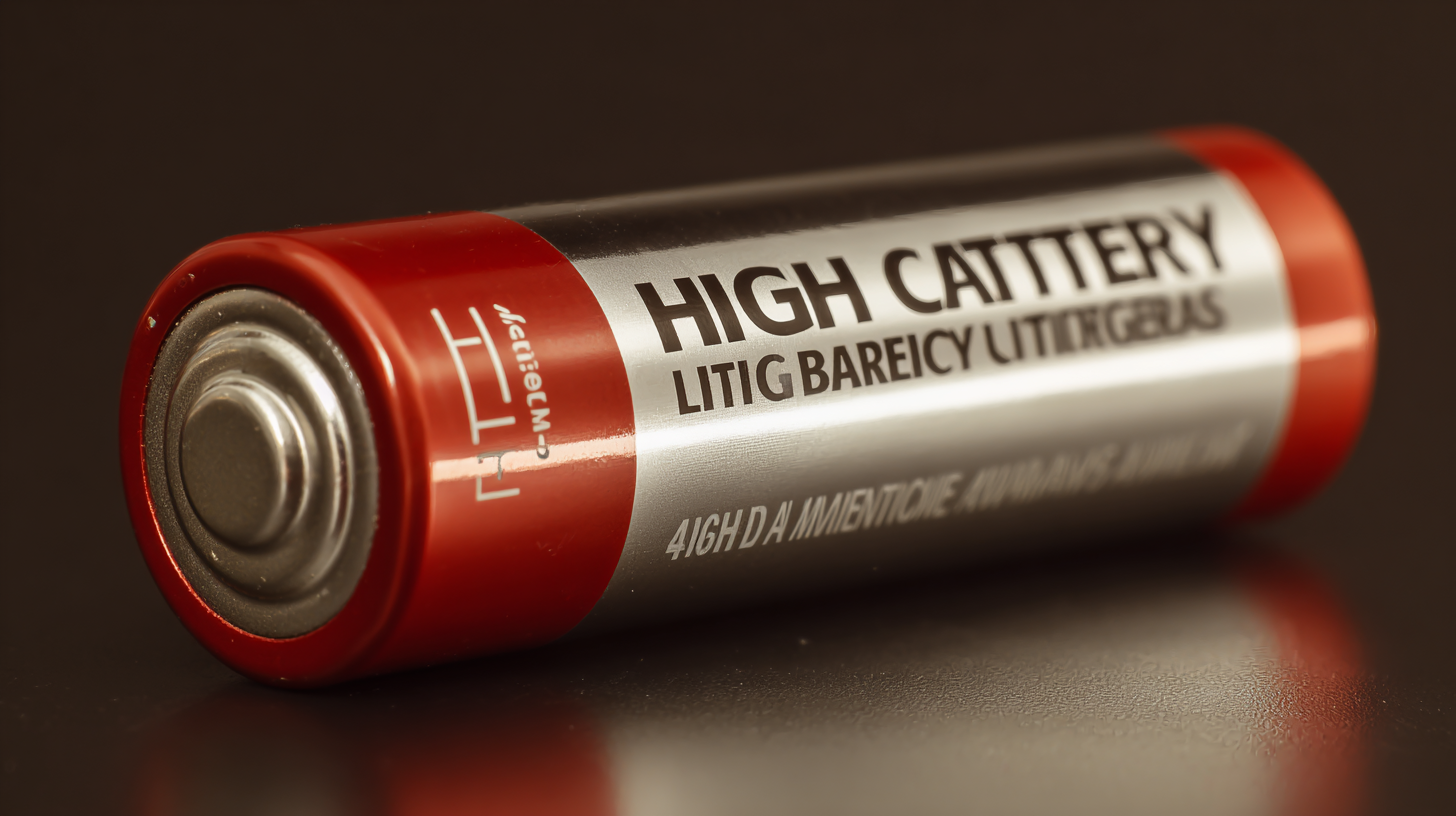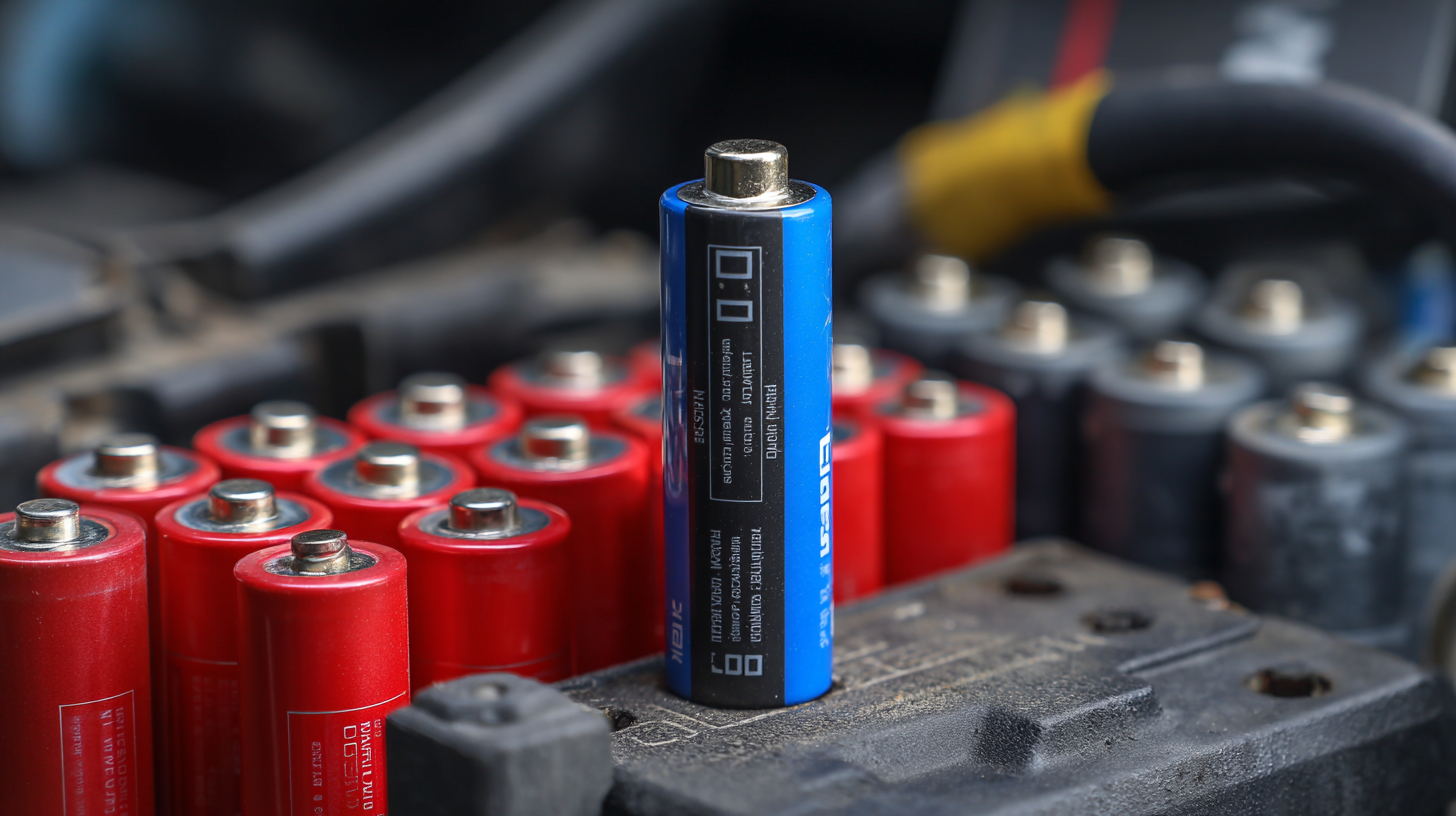In today's competitive landscape, businesses are continually seeking ways to optimize their investments, especially in technology and energy solutions. One critical area that has proven to enhance returns on investment (ROI) is the after-sales service associated with High Capacity Lithium Batteries. These advanced energy storage systems are not only vital for powering various applications—from electric vehicles to renewable energy storage—but they also come with significant maintenance and operational costs. By implementing effective after-sales strategies, organizations can significantly reduce these expenses while ensuring the longevity and efficiency of their High Capacity Lithium Battery systems. This blog will explore innovative solutions that transform after-sales service into a pivotal element for minimizing maintenance costs and maximizing overall ROI, thereby empowering businesses to thrive in a fast-evolving market.

Understanding the return on investment (ROI) in lithium battery projects is paramount for industries aiming to optimize their energy storage solutions. Recent reports highlight that the demand for high-capacity lithium batteries is projected to grow exponentially, with a market expected to reach $116 billion by 2030, driven largely by advancements in electric vehicles and renewable energy sectors. An effective way to enhance ROI in these investments is through comprehensive after-sales services that significantly reduce long-term maintenance costs.
According to a study by McKinsey & Company, integrating robust after-sales service can lead to a reduction in maintenance expenses by up to 25%. This is particularly crucial given the complexity of lithium battery systems, which require precise management to prevent issues such as overheating or capacity loss. Providing customers with continuous support, data analytics, and proactive maintenance options not only extends the lifespan of the batteries but also minimizes downtime and operational interruptions, thus maximizing overall performance and profitability. By understanding and investing in after-sales strategies, companies can ensure that their investments in high-capacity lithium batteries yield substantial long-term financial benefits.
After-sales service plays a crucial role in maintaining the longevity and efficiency of high-capacity lithium batteries. By providing expert guidance and support post-sale, manufacturers can help customers optimize battery performance and reduce potential failures. Regular check-ups and maintenance recommendations provided through effective after-sales service ensure issues are identified early, significantly cutting down on costly repairs and replacements.

Moreover, well-structured after-sales support creates a feedback loop between customers and manufacturers. This interaction allows for continuous improvement of battery technology and customer experience. By analyzing feedback from users, companies can implement design changes and advancements that not only enhance efficiency but also reduce the frequency and intensity of maintenance needed. In this way, after-sales service not only contributes directly to lowering operational costs but also fosters a stronger relationship between the provider and the user, ultimately leading to increased satisfaction and loyalty.
In today's energy landscape, high capacity lithium batteries are emerging as the preferred power storage solution over traditional alternatives, such as lead-acid batteries. A recent industry report indicates that lithium batteries can deliver up to three times more energy density than lead-acid counterparts, resulting in significantly reduced weight and size, which translates into higher efficiency in various applications, from electric vehicles to renewable energy systems. Moreover, the lifespan of lithium batteries can reach up to 10 years or more, compared to the 3-5 years typical of lead-acid batteries. This longevity contributes to lower overall maintenance costs and enhances return on investment.
Tip: When selecting batteries for your application, consider not only the upfront cost but also the total cost of ownership, including maintenance and replacement expenses.
While high capacity lithium batteries present a clear technological edge, it’s crucial to note the importance of after-sales service. Research shows that effective after-sales support can further enhance battery performance by ensuring proper maintenance practices are in place. For instance, proper monitoring and maintenance can boost battery lifespan by up to 20%, minimizing replacement costs.
Tip: Choose battery suppliers that offer robust after-sales service and support, as this can significantly reduce the maintenance costs over the battery’s lifecycle.
In today's competitive landscape, measuring the effectiveness of after-sales service is paramount for maximizing ROI, especially in the high-capacity lithium battery sector. Key performance indicators (KPIs) play a crucial role in evaluating service efficiency, revealing insights that can lead to significant maintenance cost reductions. Metrics such as response time, resolution rate, and customer satisfaction scores provide businesses with tangible data to strategize enhancements. Additionally, tracking feedback from customers helps identify areas for improvement, aligning service quality with customer expectations.
Emerging technologies like AI are revolutionizing how organizations define and refine their KPIs. By utilizing AI-driven analytics, companies can gain a deeper understanding of service efficiency and proactively address any operational shortcomings. Metrics such as customer lifecycle value and churn rate become more actionable when enhanced through AI, offering tailored strategies for after-sales service improvement. As businesses strive to optimize their after-sales processes, prioritizing the right metrics will not only elevate service levels but also drive cost-efficiency, ultimately boosting profitability in the highly competitive battery market.
This bar chart illustrates the decline in maintenance costs over five years as a result of effective after-sales service for high-capacity lithium batteries. The decreasing trend highlights the importance of after-sales support in enhancing ROI.
After-sales service plays a crucial role in maximizing the return on investment for high-capacity lithium batteries. By implementing effective support practices, companies can significantly reduce maintenance costs and extend the longevity of their products. Regular maintenance checks and timely interventions can prevent minor issues from escalating into costly repairs, ensuring that batteries operate at peak efficiency for longer periods.
One best practice is to establish a robust communication channel between customers and service providers. By encouraging users to report performance issues early, companies can leverage data to identify trends and potential malfunctions. Offering comprehensive training on proper usage and maintenance can empower customers, enabling them to maximize the benefits of their lithium batteries while minimizing wear and tear. Furthermore, providing customized service plans based on usage patterns allows companies to address specific customer needs, leading to enhanced satisfaction and loyalty.
Investing in after-sales support not only cuts maintenance costs but also fosters a proactive approach to product lifespan management. Regularly scheduled inspections and upgrades can keep batteries in optimal condition, while customer feedback channels can guide continuous improvement in service offerings. By prioritizing after-sales service, businesses can ensure their high-capacity lithium batteries remain reliable and cost-effective for years to come.



